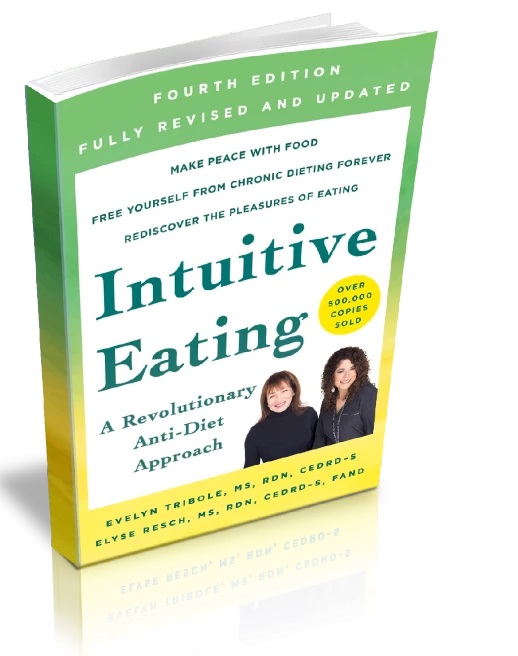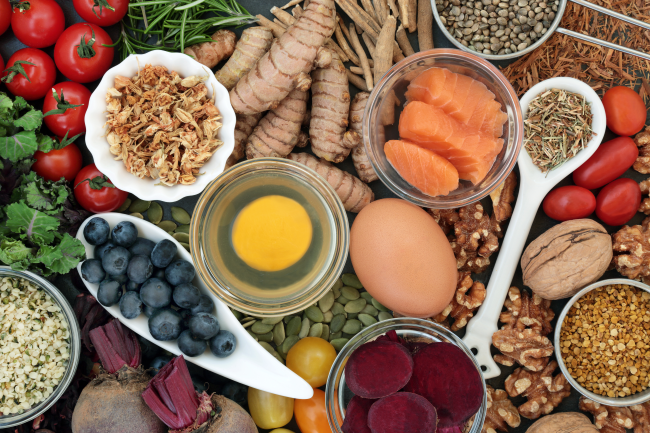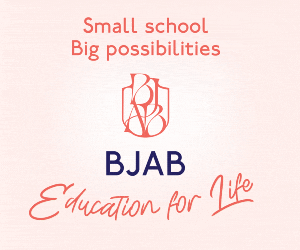In our latest Nutrition advice article Fitness & Nutrition Coach Zita Gacser talks about something that seems so unbelievable.
Imagine a life where there are no good foods and bad foods. No yo-yo dieting, no meticulous calorie tracking, starving or bingeing. No shame, no guilt. A life where you eat whatever you want, whenever you want, live well and be healthy. Carbs after 8pm? Why not? Pancakes for breakfast? Sure thing!
Does that sound too good to be true? It’s not. Registered dietitians, Evelyn Tribole and Elyse Resch coined the term ‘intuitive eating’ (IE) in their 1995 book Intuitive Eating: A Revolutionary Anti-Diet Approach. IE is therefore not a diet per se but an approach that rejects not only shame and guilt around food but also diet culture and diet mentality in general with the aim of improving one’s relationship with food. IE is also an integral part of eating disorder prevention and recovery.
What intuitive eating is and isn’t
IE, based on a set of principles that work in harmony, encourages everyone to honour their hunger and fullness signals, reduce guilt and shame around food, and reject diet culture. Therefore, IE is a skill – and just like any other skill, learning how to eat intuitively takes time.
IE, however, is not a diet: for intuitive eaters, fat loss or body composition change is not the goal. IE is not ‘giving up’ either but acceptance: once you accept that bodies come in different shapes and sizes, you will no longer feel the need to chase the ‘ideal’ body image or a certain number on the scale, in the hope of a happier, healthier life.
 Ditch the food rules
Ditch the food rules
Even if you’re not dieting right now, you might unconsciously be following certain food rules. Take a moment and think through how you eat in a day. Do you have breakfast even when you’re not hungry because ‘breakfast is the most important meal of the day’ or do you perhaps skip breakfast because intermittent fasting worked for your friends so it should work for you too? Do you always finish your plate, avoid sugar like the plague, or eat only ‘healthy’ foods?
If so, you’re living by food rules. IE suggests you ditch these food rules, listen to your body instead and eat all the foods you want – without judgment. If you’re thinking what I’m thinking (“That’s a terrible idea – I’d just eat burgers, fries, and chocolate cake all the time!”), fear not: advocates of IE believe that once we stop restricting and start eating for nourishment, we will naturally prioritize foods that are good both for our taste buds and our health.
There are ten principles:
1. Reject the diet mentality: Diet culture has taught us the leaner we are the better. We became much more aware of (if not obsessed with) our food choices, we give moral values to food (good foods vs bad foods), and we either keep hopping from one diet to another or we feel ‘off track’ when we aren’t dieting. Reject the false promise of the diet culture that thinner means happier, healthier or more successful; recovery from constant dieting is only possible if you let go of this pretence – for good.
 2. Honour your hunger: Don’t fear hunger – it is a completely normal signal your body sends to your brain that it is time to eat. You should feel a little hunger before each meal. Learn to recognize hunger cues and honour them. Fasting, on the other hand, may result in bingeing.
2. Honour your hunger: Don’t fear hunger – it is a completely normal signal your body sends to your brain that it is time to eat. You should feel a little hunger before each meal. Learn to recognize hunger cues and honour them. Fasting, on the other hand, may result in bingeing.
3. Make peace with food: Speaking of bingeing, do you ever find yourself elbow-deep in a bag of chips, even though you know you ‘shouldn’t’? The restriction of these ‘off-limits’ foods often lead to cravings and overeating. Stop labelling foods as good or bad, healthy or unhealthy, clean or dirty. Give yourself permission to eat all the foods you want, guilt free.
4. Challenge the food police: The food police are your internal thoughts around foods that tell you what you should or shouldn’t eat, that you’re either good or bad for eating certain foods, and that you should follow certain diet rules such as ‘no carbs after 8pm’. Challenge these thoughts as soon as they occur.
5. Feel your fullness: IE isn’t only about honouring your hunger but your fullness, too. Check in with yourself during the meal: pause, put the fork down, ask yourself how the food tastes and how full you are. Don’t stop because you think you’ve eaten enough calories or when your plate is empty – stop when you feel comfortably full and satiated.
6. Discover the satisfaction factor: Food could and should be satisfying. It is hard to savour and appreciate your meal if you eat in a rush at the kitchen counter, in front of the TV, or in the car while driving to your next appointment. Once you make eating an enjoyable experience, you will notice that you need less food to feel satisfied.
7. Cope with your feelings without using food: If you emerged from lockdown 5-10kg heavier, chances are, you raided the fridge every time you were bored, stressed, or lonely, or perhaps you tried to eat less to lose fat – but your restricting resulted in bingeing. Realize that food won’t solve your problem; instead of numbing with food, find other ways to cope: call a friend, try meditation, journaling or go for a walk.
8. Respect your body: An integral part of IE is recognizing that bodies come in different shapes and sizes, and that the attempt to live up to unrealistic expectations is futile. Accept and appreciate the body that you have instead of striving to achieve the ideal’ body image. Remember, IE is not a fat loss tool – you might lose, gain, or maintain your current body weight when you start eating intuitively.
9. Exercise — feel the difference: Chronic dieters tend to exercise only to burn calories but have long forgotten the joy of movement. Find any form of physical activity that you truly like (whether it’s football, hiking, dancing, strength training…), and feel the difference between exercising for the sake of burning calories and exercising for enjoyment.
10. Honour your health — gentle nutrition: The last principle is about making food choices that feel good not only for your taste buds but for your health. Eat for nourishment, not only for satisfaction and realize that you don’t have to be perfect with your nutrition: one not-so-healthy meal won’t result in instant nutrient deficiency or illness. Focus on progress over perfection.
Bottom line
Dieting often feels like a never-ending fight. You go to war every day. You fight your hunger, your cravings, your colleagues’ judgmental looks – either for not eating with them or for reaching for a second piece of cake. You go from one diet to another, lose some weight, gain it back and continue to struggle.
IE can help you end the fight. Become the expert of your own body, reclaim the innate ability to eat based on hunger and fullness signals, and to eat not only for nourishment but also for enjoyment and satisfaction – and you might actually achieve a healthier, happier life since a lower number on the scale is never guaranteed in the first place.







